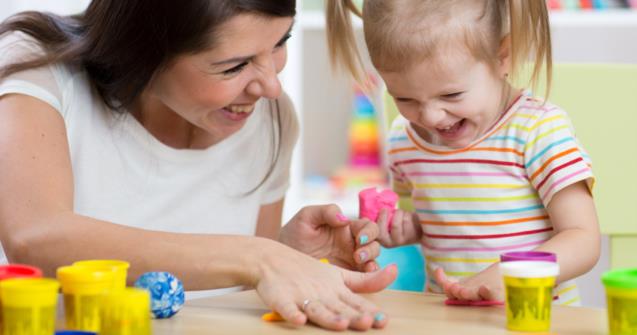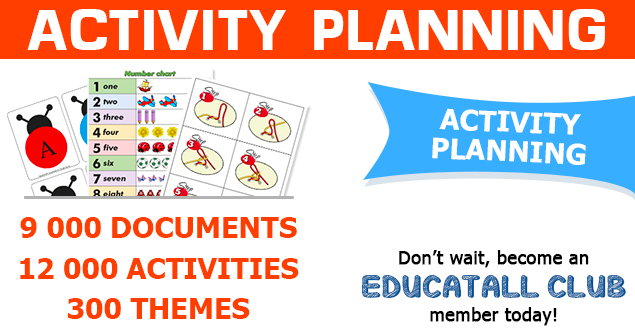
Making time for free play
Many courses I took to become a specialized educator focused on the importance of planning scheduled activities. When I first began working, I left little room for free play. I was under the impression that I was really working when I offered a planned activity or directed a specific game or project. During the few periods of free play I integrated in my schedule, I was in observation mode and the hyperactive side of my personality left me feeling as if I wasn't caring for the children in my group and not successfully executing my role. Looking back today, I know that was not the case. Children need an adult to lead group activities, but free play has a lot to offer and mustn't be ignored.
After reading many books and taking additional courses, I have a completely different take on free play. In fact, we must ask ourselves why we feel the need to constantly "organize" children when giving them the opportunity to create their own games empowers them, possibly even more than any game we can plan for them.
Free play is extremely beneficial for childhood development. It makes countless personal and social discoveries possible. Among other things, free play stimulates creativity, an aspect of childhood development that is often limited by offering too many structured crafts. Free play gives children the opportunity to create, experiment, and develop new strategies. Creativity is maximized when children are free to choose what they wish to do. Free play also makes it possible for children to compare themselves to others on a social level and interact with their peers. During free play, children learn from each other. They can experiment different things, encounter successes, and overcome various challenges. All these things can greatly increase their self-esteem.
What is free play? Free play must include activities that are not chosen by an adult. In other terms, no adults allowed when choosing free play activities. Children play alone or together and adults mustn't participate unless they are invited. Children must have complete control over their games and activities. What role must an early childhood educator play?
- Provide all accessories and materials for children to be able to play freely.
- Offer support, for example during conflicts or if children need assistance in the "organization" of their games or activities.
- Make room for free play in her daycare schedule, provide time for children to play independently.
- Create a large space within her daycare so children have room to play without having to deal with physical or environmental limitations.
- Take advantage of free play to observe children (interests, capacities, friends, etc.) and get to know them better.
The goal is not for children to play freely all day. I believe structured activities with specific goals are very important. However, it is equally important that children enjoy fairly long periods of free play throughout the week to ensure they have time to explore on their own.
I hope this article has helped you discover another side of free play.
Maude Dubé, Specialized educator

 Home
Home Theme activities
Theme activities
 Babies and toddlers
Babies and toddlers
 Arts and crafts
Arts and crafts
 Science
Science
 Creative recipes
Creative recipes
 Tips and tricks
Tips and tricks
 Special needs
Special needs
 Extra activities
Extra activities
 Educ-TV
Educ-TV
 Newsletter
Newsletter  Online store
Online store Educatall club
Educatall club

